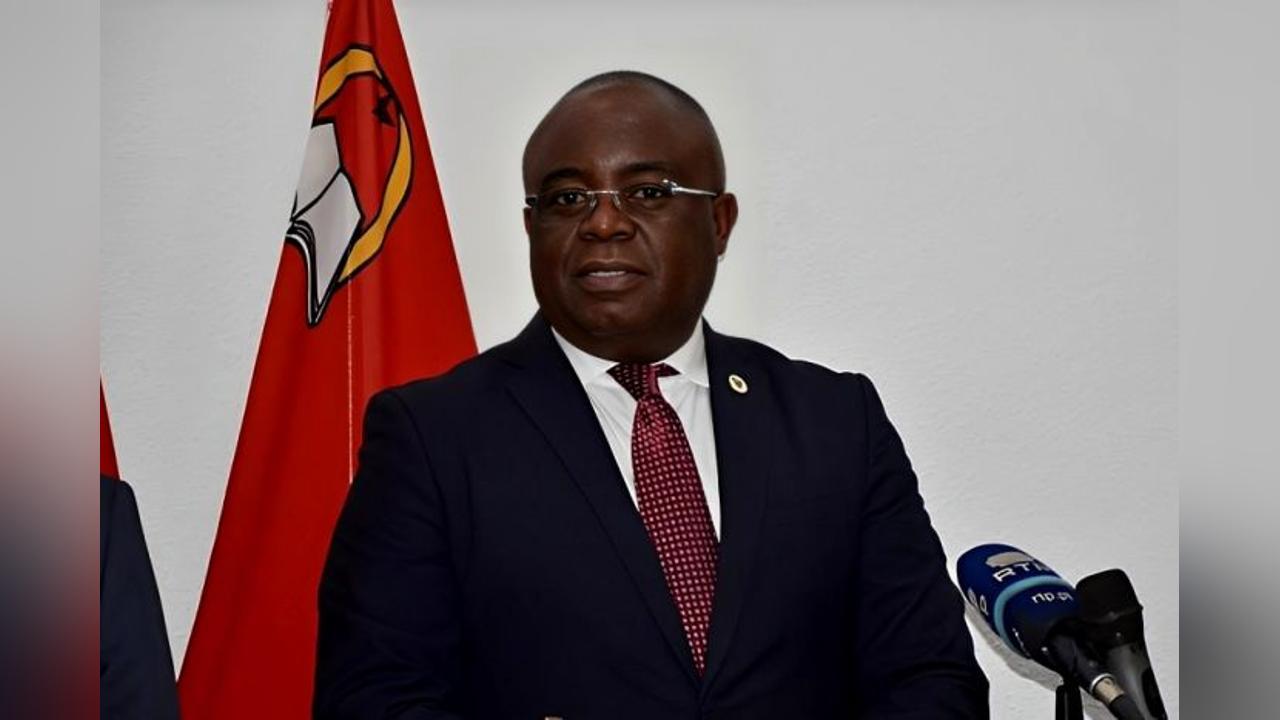Africa-Press – Angola. In an interview , Álvaro Chikwamanga, secretary general of UNITA, says that the violent protests are a consequence of the chaos and poverty that Angola is experiencing and proposes dialogue as the only way to overcome the current crisis.
Angola’s largest opposition party acknowledges that Luanda residents were taken by surprise on Monday (28/07) by the wave of vandalism and looting in the Angolan capital, in the context of protests against rising fuel and public transport prices.
But the National Union for the Total Independence of Angola (UNITA) stresses that it is the responsibility of the strike organizers not to associate themselves with vandalism, in the same way that it demands the containment of police violence.
For Álvaro Chikwamanga, UNITA’s secretary-general, the violent protests are a consequence of the chaos and poverty Angola is experiencing and also a message the population has sent to an executive that is governing poorly. The Black Rooster Party proposes dialogue as the only way to overcome the crisis.
DW Africa: Taxi drivers called a strike, not street protests. What fueled yesterday’s explosion?
Álvaro Chikwamanga (AC): I believe it was misinformation that the media attempted to spread in an attempt to break the strike, and then control of the situation was lost. Because those who were going to protest, that is, those who were going to strike to stay home, saw people in the streets opposing the strike, and attacked cars, tried to charge people, both public and private, and then simply vandalized vehicles, including commercial establishments, and control was practically lost.
DW Africa: The people looted the stores. Doesn’t that discredit the protests?
AC: Yes, I mean, it was unexpected that the situation would lead to the looting of commercial establishments, because the problem was a taxi strike that urged its users to stay home. But this situation was exploited by anonymous citizens, and the police are now working to identify them. But this is also partly a consequence of the chaotic situation in Angola. There is a situation of unequivocal hunger, unequivocal poverty, for which the state has been unable to find adequate responses. So, what happened was just the fanning of a flame that was expected to flare up at any moment.
DW Africa: In this regard, do you see the protests as a trigger for a large-scale uprising against the highly contested government?
AC: I think so, yes, this is a response, a message that citizens are sending to the government. I think citizens are telling the government that it’s governing us poorly, that it’s not listening to our cries, that it’s not engaging in dialogue with the poorest segments of the population, who are currently mostly young people. If this dialogue doesn’t exist, people are turning to devious avenues, unfortunately, because the ones vandalizing homes aren’t taxi drivers.
DW Africa: Under what circumstances would UNITA consider joining the population in protests?
AC: What UNITA did was show solidarity with the strike, but UNITA holds the strike organizers accountable for not associating themselves with vandalism, because vandalism is a crime, and robbing commercial establishments is a crime. Therefore, UNITA does not support this. Now, the taxi drivers’ strike is normal, it’s constitutional, and all we hoped for was for the government to find the opportunity, the moment, to talk to the strikers, to hear what they say in their demands and to find the best solutions for them.
DW Africa: Despite the crimes committed by some members of the public, the police also allegedly used excessive force. What does UNITA have to say about police action?
AC: Our call is for police restraint and violence. The solution doesn’t involve violence against the strikers who are being identified and arrested, nor does it involve violence against the citizens who protested, and especially against those who are going to storm businesses. But we must insist that the best way to solve the problem in society is precisely through consultation and dialogue. So, that’s what we’re calling for: police restraint.
It’s true that we all understand that the police were caught off guard. Today, it seems to me that the police themselves have a little more control, a little more posture, but what happened yesterday left the whole country caught off guard. And we were even frightened because it seemed like we didn’t have a security service here that could protect us from the situation we’re experiencing. So, we continue to urge the authorities to assume their responsibilities intelligently.
DW Africa: Will brute force be able to stop a people who feel they have nothing left to lose?
AC: Bodybuilding to solve social problems doesn’t solve the problem. Arrogance to solve the social problem doesn’t solve the problem. Arrogance must be curbed, not only in actions but also in speech.
For More News And Analysis About Angola Follow Africa-Press






